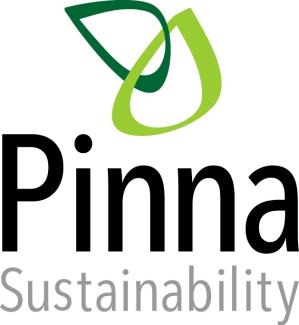From a UBC Sustainability Scholar with the City of Vancouver, to a successful Sustainability Consultant.
Beyond MFRE is a series of interviews focusing on alumni and their life after our masters degree. From PhD candidates to managers in international companies, our alumni share their stories across sectors and industries.
In this article we share an interview with Kat Jin, an alumna who excelled in her MFRE Graduating Project a UBC Sustainability Scholar, and is currently employed with Pinna Sustainability as a Sustainability Consultant.
Tell us about your background and the key experiences that led up to your current role with the BC government.
I was born and raised in China, and came to Canada after I finished my bachelor's degree in International Economics and Trade. I worked in marketing and data analytics in Toronto for several years. It was during that period that I was attracted to the MFRE program for its Economics, Environment and Data Analysis components. Overall, my life in Canada has been a blessing, and my experience at the UBC MFRE is one of the many highlights I will always cherish.
What are your specific role and the typical nature of your work?
I currently work for Pina Sustainability as a Sustainability Consultant. Pinna was founded in 2012 in Vancouver by Cariad Garratt and Gillian Aubie Vines. From the very beginning Pinna has engaged in a wide range of projects with multiple levels of stakeholders, including provincial and municipal governments, crown corporations, and universities. For most of the projects, Pinna helps the clients with sustainability planning. While I am usually involved in many sustainability planning stages, my role at Pinna primarily focuses on policy analysis. In addition, I translate large qualitative and quantitative data sets into a format that is informative for the development of climate change action plans and strategies.

How has the MFRE masters degree helped you make meaningful contributions at work?
MFRE provided me with knowledge in areas that I was unfamiliar with, and bettered me in the areas I had experience in. I continue to benefit from the knowledge and experience I gained from the MFRE program every day. Courses related to applied economics in agriculture, food, and the environment inspired me to pursue my career in the field of sustainability, and helped me build a strong knowledge foundation. Courses related to econometrics and quantitative methods significantly improved my data analysis and modeling skills. One unique aspect about MFRE I like very much is the workshops and seminars that aim to help students with professional development and bring "real-world" experience into classrooms. I find myself with better professional and personal skills after being exposed to "reality" and "nurtured" to my potential.
MFRE has also contributed to my career path through the graduating project. With the help and guidance from Dr. Kelleen Wiseman, I had the opportunity to work as a UBC Sustainability Scholar with the City of Vancouver on topics related to food waste. The graduating project reassured my passion for working in a field where I can help make the environment better and improve people's lives. The experience also taught me that, though it may not always be easy, anything is possible through hard work, discipline, and a desire to help the planet.
What makes MFRE a strong professional masters degree for those interested in data analytics?
The coordination and incorporation of data analytics software tools such as R Studio, Python, Tableau and Excel, and their application in all MFRE courses make the program very unique.
Learn more about Pinna Sustainability: https://www.pinna.ca/
